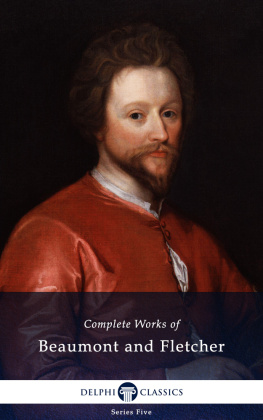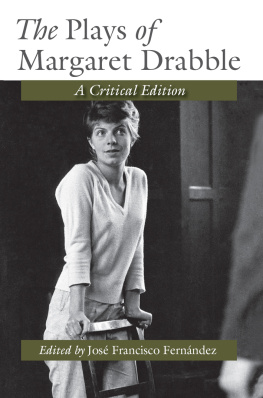TRANSCRIBER'S NOTE:
Original spelling and punctuation has been retained, with a few exceptions. Some quotation mark errors have been fixed.
On page 51, the passage "to the deer-haunted heights of Dunkerry" is retained. "Dunkery" occurs four times in the book; "Dunkerry" once.
IN THE WEST COUNTRY
by Francis A. Knight.
In the West Country
BY
FRANCIS A. KNIGHT,
AUTHOR OF
"By Leafy Ways," "Rambles of a Dominie," "By Moorland and Sea," &c., &c.
ILLUSTRATED.
Bristol:
W. CROFTON HEMMONS, ST. STEPHEN STREET.
London:
Simpkin, Marshall, Hamilton, Kent & Co., Ltd.
These sketches are, with alterations and additions, reprinted from the "Daily News" and the "Speaker," by kind permission of the editors.
WITHOUT PERMISSION,
BUT WITH LOVE AND GRATITUDE
TOO DEEP FOR WORDS,
These Pages are Dedicated
TO
THE DEVOTED COMPANION
WHOSE RAMBLES WITH ME IN
The West Country
BEGAN NOW NEARLY
"... five and twenty years ago;
Alas, but time escapes! 'Tis even so."
Printed at the Publisher's Works, St. Stephen Street, Bristol.
[ALL RIGHTS RESERVED.]
Sailing Ships in Harbour.
AT CLOVELLY.
There are few parts of English coast-line whose traditions are more picturesque than those of the beautiful sea-board of Devon. Its shores are haunted by memories of the great Armada, of the deeds of Drake and Hawkins, of Howard and Raleigh, and of many another old sea-dog, who played his part in the making of our island story. It was the coast of Devonshire that was first harried by the Danes, when, in the words of the Anglo-Saxon chronicle, "three ships of Northmen, out of Denmark," put in to plunder Teignmouth. The other side of the county suffered most. Again and again the hamlets on the northern shore were wasted by the merciless invaders. The isle of Lundy, that from the land shows like a faint blue bar along the sky line, has a stirring story of its own. It has served in its time as a stronghold even of corsair Algerines. Pirates from Spain and Holland each held it in their turn. On the beach of its only landing place there still lies, buried in the shingle, an ancient gun that was hurled over the cliff by the French when they were about to leave the island. Its rightful lords themselves were, in the good old days, little better, probably, than buccaneers.
But there is a greater and more real interest linked with this pleasant shore. The memory that, before all others, haunts the coast of Devon is the memory of Charles Kingsley. The legends that have most charm for us here are from the pages of "Westward Ho!" If Bideford has regained nothing of its lost renown, Bideford that in Queen Bess's time "was one of the chief ports in England furnished seven ships to fight the Armada; and even more than a century afterwards sent more vessels to the northern trade than any port in England saving London and Topsham," we cannot forget that it was there that "Westward Ho!" was written. As we stroll along the streets of the little seaport that lies opposite, we are less likely to think of Hubba and his vikings than of how "the Vengeance slid over the Bar, passed the sleeping sandhills, and dropped anchor off Appledore with her flag floating half-mast high, for the corpse of Salvation Yeo was on board."
Kingsley's pictures of South American forests have fired the heart of many a reader, old as well as young, to see for himself the wonders of those enchanted regions, to gaze on a giant ceiba tree, like that on the green steeps above La Guayra, where "Parrots peeped in and out of every cranny, while, within the air of woodland, brilliant lizards basked like living gems upon the bark, gaudy finches flitted and chirrupped, butterflies of every size and colour hovered over the topmost twigs, innumerable insects hummed from morn till eve; and, when the sun went down, tree-toads came out to snore and croak till dawn."
But those descriptions, marvellous as they are, were borrowed from books. It was not until fourteen years after that passage was written that "the dream of forty years" was fulfilled; that the author of "At Last" was able to see with his own eyes the West Indies and the Spanish Main; could, as he says, "compare books with facts, and judge for myself of the reported wonders of the earthly paradise." But it is quite another thing when he is talking of the coast of Devon. There his foot is on his native heath. He was not, it is true, born within sound of the sea, but some of his earliest memories were of Hartland and Welcombe, of Bideford and Clovelly. Above all of Clovelly. To use his wife's words, "His love for Clovelly was a passion." Even his well-loved Eversley had hardly a warmer place in his regard.
Kingsley was just eleven when his father became rector there, and for some six years he doubtless spent most of his holidays at least among the scenes which he describes so well. Thirteen years passed before he went back. "I cannot believe my eyes," he wrote to his wife; "the same place, the pavement, the same dear old smells, the dear old handsome, loving faces again." The cottages are much the same as when last he saw them, now nearly fifty years ago, "with jessamine and fuchsia running up the windows." Just the same as then is "the narrow paved cranny of a street, vanishing downwards, stair below stair." Any change there is must be for the better. The village has been drained; that is a substantial improvement, and the fuchsias and climbers have wreathed half the hamlet in a very bower of green. Clovelly Churchso far away that the sound of its bells never reaches the village in the cleft belowhas few features of its own to recommend it. But the grey-haired sexton remembers how he sat with young Kingsley in the choir, sixty years since, when they were boys together. And the churchyard is to us like a chapter of romance. Half the names we know best in "Westward Ho!" are on its stones.









